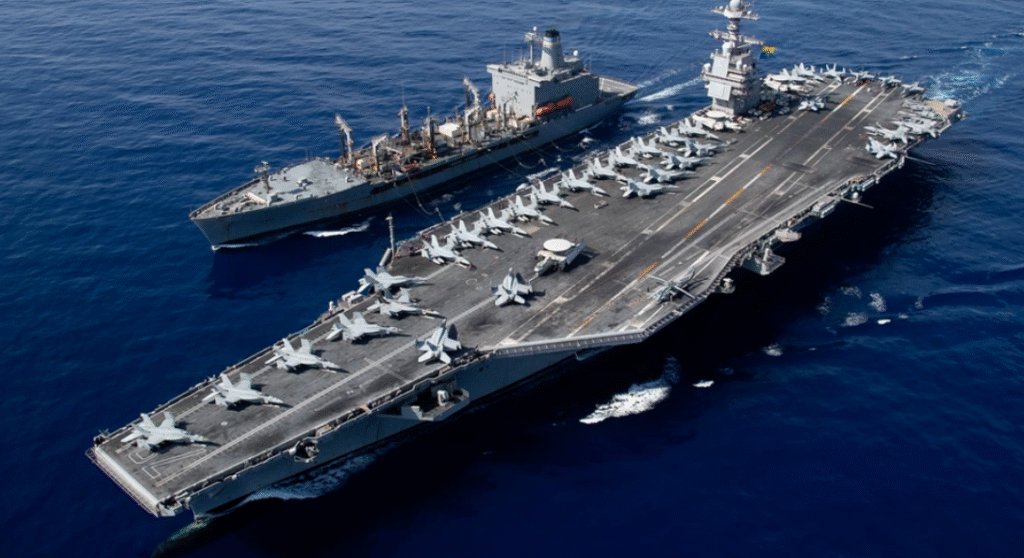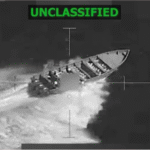The arrival of the USS Gerald R. Ford — America’s biggest warship — into the U.S. Southern Command area has the rumor mill spinning with predictions of a U.S. land invasion of Venezuela. But while a quick, surgical strike is very possible, an all-out U.S. invasion now seems far less likely than it did just two weeks ago.
The reason? Domestic U.S. politics. The Republican Party’s crushing defeat in the November 4 state and local elections is likely to force Trump to pivot inwards, shelving — at least for the moment — any plans to get bogged down in a costly, lengthy foreign conflict.
The sweeping Democratic wins in the New Jersey and Virginia gubernatorial elections, plus a pile of other races nationwide, hit the Trump camp like a political tsunami. The candidates he backed didn’t just lose a few races — they lost virtually all.
In a rare admission, Trump himself conceded it was a bad night for the GOP. What drove the voters? Exit polls clearly showed that people turned out primarily to show their anger over the soaring cost of living — the very thing Trump had promised to fix during his presidential run.
Adding fuel to the fire, voters were angered by the reports of Trump’s massive, up-to-$300 million White House East Wing renovation to build a giant ballroom while countless Americans struggle to pay their bills. (Yes, the administration insists private donors foot the bill, but skeptics say there’s no such thing as a free ballroom. Corporate donors are very likely to get government favors, they say.)
Now, even key figures from Trump’s own MAGA movement are demanding he spend less time globe-trotting and more time fighting the affordability crisis at home.
“The White House is going to pivot now back to even a bigger focus on domestic policies,” Trump’s former strategist Steve Bannon told Politico just hours after the elections. Bannon suggested that “spending so much time in the Mideast, spending so much time in Ukraine” has hurt the president politically at home.
Likewise, far-right Republican Congresswoman Marjorie Taylor Greene told NBC that Trump’s frequent trips abroad are “doing nothing to solve” Americans’ economic problems.
Which brings us back to Venezuela. The arrival of the air carrier USS Gerald R. Ford to an unspecified location closer to Venezuela amounts to an escalation of Trump’s military pressure on drug traffickers and Maduro, who the U.S. government has officially declared a “narco-terrorist.”
The carrier and its strike group will increase a flotilla of at least eight other warships and more than 10,000 troops that Trump has sent to the Caribbean in recent weeks. The U.S. naval force has already sunk at least 19 alleged drug boats, killing 76 unidentified people, according to the U.S. Defense Department.
This massive U.S. military deployment may already be too big — and too costly — for Trump to order it home without firing a single shot at a target inside Venezuela, well-placed military experts tell me.
But rather than a full-scale land invasion to oust Maduro — like the 1989 U.S. invasion of Panama that toppled the late dictator Manuel Noriega — it’s likely to be a one-time U.S. air attack on a drug lab or a military installation. Think of it as a repeat of Trump’s air bombing of Iran’s Fordo enriched uranium facility back in June, they say.
Former U.S. Southern Command head (Retired) Adm. James Stavridis told me in an extended interview that U.S. domestic factors such as the anti-Trump vote in the most recent elections have significantly lowered his expectations of an all-out invasion of Venezuela.
“Domestic turmoil here in the United States is taking attention away from the scenario down south,” he told me.
When I asked him what he expects to happen next, Stavridis said the first thing to watch will be how close to Venezuela the USS Ford gets. The longer it stays in the general area without getting into action, the more likely it is to be turned away to another part of the world, he said.
“We only have 11 of these carriers in the whole U.S. Navy, and a third of those are in maintenance at any one time,” Stavridis told me. “That’s a very precious asset. If you’re not going to use it, you’re going to move it somewhere else.”
The bottom line is that the USS Ford’s arrival has undeniably raised the temperature — and the chances — of a U.S. strike. But after Trump’s dismal election showing, a quick drone or Tomahawk missile attack aimed at sending a message to the Venezuelan regime is far more likely than a U.S. invasion to oust Maduro.
In other words, Trump may look for a fast air strike that he can sell as a major victory, tweet about it and then move to the next issue.
By ANDRES OPPENHEIMER/Miami Herald Opinion Writer



